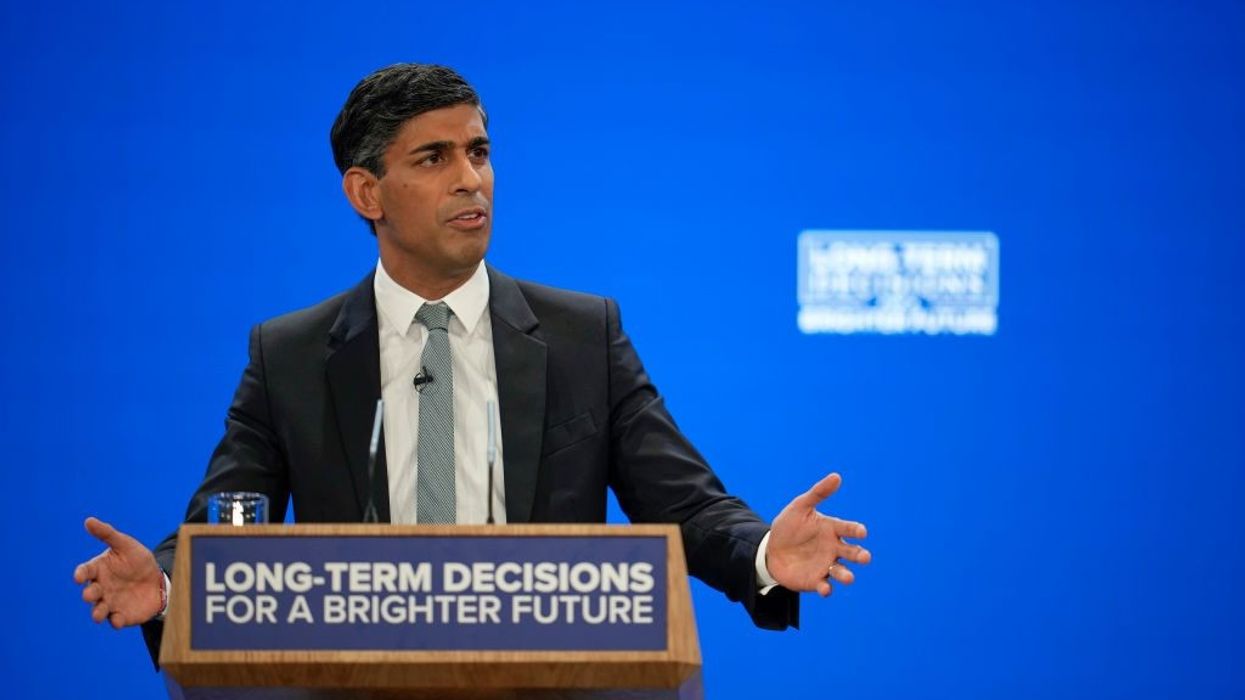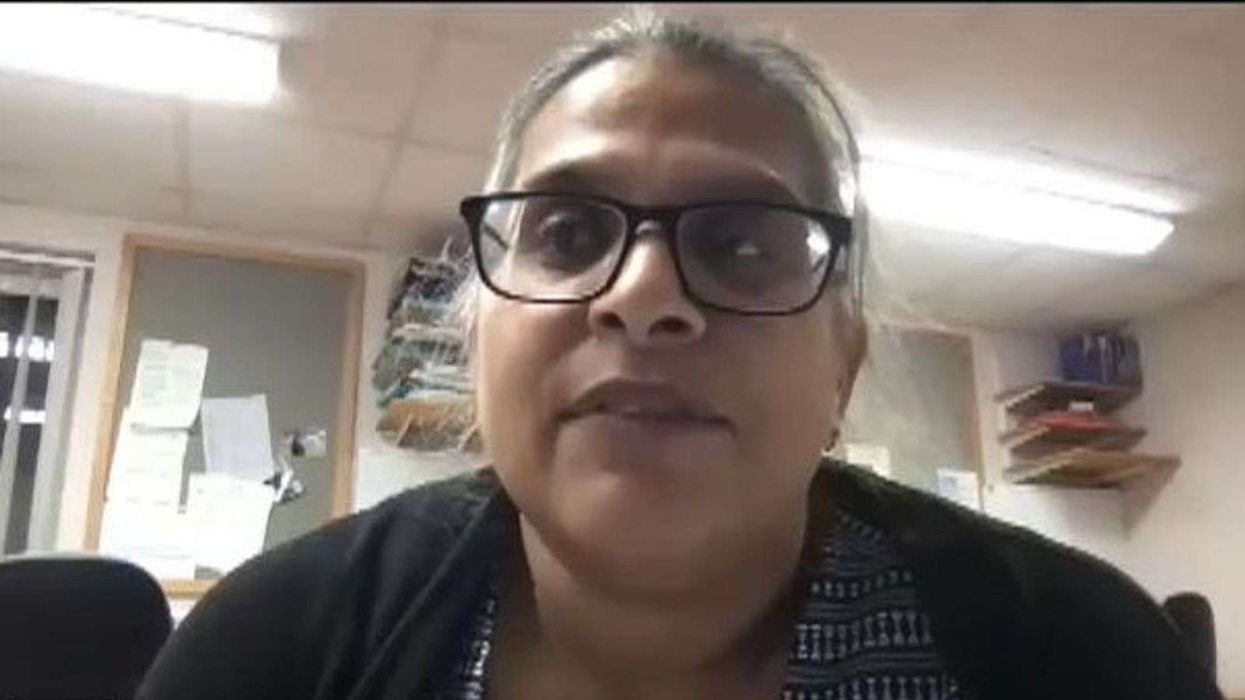PRIME MINISTER Rishi Sunak portrayed himself as a tough decision maker and an agent of change on Wednesday (4), seeking to break with the scandals and chaos of his Tory predecessors and show the party he can help it win an upcoming election.
In a speech lasting more than an hour to the party's annual conference, he promised that the Tories -- on course for defeat at the next vote, according to opinion polls -- would break the mould of the last 30 years of government.
"We will be bold, we will be radical. We will face resistance and we will meet it," he told delegates.
"We will give the country what it sorely needs and yet too often has been denied."
He added: "It's time for change and we are it."
Sunak's speech effectively fires the starting gun on the election campaign.
As expected, he confirmed rumours that he would scrap the second leg of the HS2 rail project between Birmingham in central England and Manchester.
"I'm cancelling the rest of the HS2 project and in its place we will reinvest every single penny, £36 billion, in hundreds of new transport projects in the north, in the Midlands, across the country," he said.
Manchester had been due to be a terminus for the massive infrastructure project, which has been plagued by huge cost and delivery overruns.
The decision has angered local politicians in the north of England, many areas of which switched from Labour to the Tories at the last election in 2019 on a promise that long-standing regional economic inequalities would be addressed.
Ban on cigarettes for younger generations
The government proposed banning younger generations from ever buying cigarettes, a move that would give the country some of the world's toughest smoking rules and hurt the sales of major tobacco firms.
If passed into law, the smoking age would rise by one year every year, potentially phasing out smoking among young people almost completely as soon as 2040, a briefing paper said.
"A 14-year-old today will never legally be sold a cigarette," Sunak said.
Smoking costs Britain's health services £17bn a year, he said, adding the government also needed to act on youth vaping.
It would consult on restricting the flavours and descriptions of vapes and look at regulating vape packaging and presentation, according to the briefing paper.
Campaign group Action on Smoking and Health welcomed Sunak's plans, adding they could hasten the day when smoking was obsolete.
The tobacco industry criticised the proposals. The Tobacco Manufacturers Association said they were a "disproportionate attack" on adults' rights and would fuel black market trade.
"The prohibition of legal products always has dangerous side effects and opens the door to criminal gangs to sell illegal products," it said.
Plans to overhaul post-16 education
Sunak set out plans to overhaul post-16 education in England with a new qualification and promised a tax-free bonus of up to £30,000 to help attract and retain teachers in key school subjects.
The government said it would provide an initial £600 million of funding over two years to help support teacher recruitment and retention and lay the groundwork for a new qualification for 16-19 year-olds.
The Advanced British Standard, which the government said it did not expect to introduce for more than a decade, would see most students study a minimum of five subjects, compared to three under the current A-level system.
It will also incorporate the current T-level qualification, focused on vocational skills, so students have the option to take a mix of technical and academic subjects, with all students also required to study some form of maths and English to age 18.
"Education is the closest thing we have to a silver bullet – it is the best economic policy, the best social policy and the best moral policy," Sunak said in a statement, adding the changes would bring England into line with other major western economies including France, Germany, Japan and the US.
"The plan we have set out today ... represents real, meaningful reform that will put technical and academic education on an equal footing and ensure that all young people leave school or college knowing the basics in maths and English."
Children currently aged 4-5 years-old, who started primary school this year, are expected to be the first cohort to take the Advanced British Standard, the government said.
Promises tax cuts once inflation tamed
Sunak promised that he would cut taxes once inflation was under control, following mounting concerns from Tory members about a rise in tax levels since the Covid-19 pandemic.
"I know you want tax cuts. I want them too and we will deliver them. But the best tax cut we can give people right now is to halve inflation and ease the cost of living," Sunak said.
Throughout this year, Sunak and his finance minister Jeremy Hunt have said their priority is to halve inflation - which hit a 41-year high of 11.1 per cent in October 2022 - and that tax cuts risked delaying this.
However, many party members are impatient for tax cuts ahead of a national election which is likely next year.
On Friday, the Institute for Fiscal Studies, a non-partisan think tank, said tax revenue was likely to represent 37 per cent of annual economic output at the time of the next election, up from 33 per cent at the time of the last election in December 2019.
This would be Britain's highest tax rate since at least the 1950s, although below most other similar European economies.
Sunak was unexpectedly introduced on stage by his wife, Akshata Murty, who praised his qualities, making his speech -- his first as prime minister -- more like a wider leadership pitch to the public.
Convincing voters to stick with the Tories is an ominous task, given voter apathy with a party in power since 2010 and damaging periods of turmoil under his predecessors Liz Truss and Boris Johnson.
Three imminent by-elections could lay bare the scale of the task ahead, with the Tories at risk of losing each one despite having won two of them in 2019.
(Agencies)














